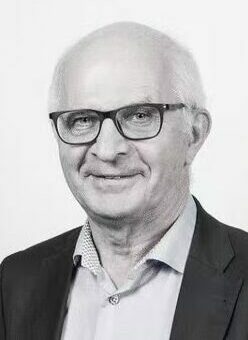At Granode Materials, see our views and intentions
Global Challenge & Opportunity
Climate change calls for a bold and swift transformation of the economy. With lithium-ion batteries and their value chain being the key enablers of the European Green Deal, the challenge to secure the present and future supplies of raw materials has been elevated to the very top of the economic agenda.
Batteries as a critical ingredient of a sustainable future
Batteries are emerging as a critical ingredient in the transition to a more sustainable future because of their role in electrifying transportation and balancing intermittent power grids.
Recent demands in electric private transportation are a clear accelerator of the lithium-ion battery growth.
However, the use of batteries is more than an opportunity to eliminate vehicular CO₂ and NOₓ emissions. In a world grappling with climate change, scaling up production of battery-related raw materials—a clearly long-term vital future industry—can also offer:
Technological Vision of Granode Materials
Technological developments at Granode Materials play a pivotal role in the battery value chain, holding vast potential for value-creation and macroeconomic growth in future industries.
This vision will be realized through Granode’s core product development, driven by the critical need for higher energy densities in portable applications and the importance of reducing battery costs. Granode will be driven by the importance of scale to reduce production costs and the competing battery performance.
A sustainable European battery value chain
Granode Materials envisions a sustainable battery value chain that can help unlock the recent wrangles of the Swedish and European raw materials supply risks, while pushing the boundaries of innovation to provide competitive high-performance lithium-ion batteries for the region.
Our prediction: the winning companies will be those that create the changes of the next few years.
Driven by current demand, small companies face various obstacles in the race to scale, but they can overcome these challenges by adopting a straightforward yet difficult strategy: become a low-cost producer.
Our previous experience with tier-one European OEMs shows that key criteria for successful collaboration are:
lowest cost
a track record of consistent quality
high yield
sustainability
Competitive pressure from EV manufacturers
In the coming years, remaining competitive as an electric vehicle (EV) manufacturer in the mass market will critically depend on the cost-quality tradeoff from the consumer’s perspective.
Achieving Li-ion batteries at costs of about 70–80 USD/kWh, which translates to EV pack prices of 100–110 USD/kWh, is a resolute target for the OEMs until 2030.
This target is only feasible through economies of scale (both in batteries and raw materials supply) and increased energy density of the cells (both in weight and volume).
Production Philosophy & Growth
Features that are ’’etched on the stone’’ in Granode products. The next few years will see exponential expansion in plant sizes. In 2016 the average Li-battery plant was 2.5 GWh, which is expected to grow to above 50 GWh by 2030.
A path of exploiting cheap and widely abundant raw materials
Propelled by these learnings, Granode has selected a path of exploiting cheap and widely abundant raw materials for our anode development.
The innovative solutions explored at Granode promote simple and easily scalable routes that can potentially satisfy the extensive volumes needed for market demand.
Today, Granode is considered a fast-moving organization striving to secure capacity of capable machinery as well as a qualifying supply chain.

Chairman
Bertil has stellar track of records in several major industries such as Group Chief Financial Officer at Anticimex AB.

Board
Dr. Bo Normark, industrial strategist at Innoenergy is one of the real visionaries in the transformation of Swedish industry.

Vice Chariman
Dr. Thunell is and independent investor with the main interest on the energy sector and sustainable unicorns.

Board
Dr. Brandell professor in Materials Chemistry, within Ångstrom advanced battery center.

Deputy Board
Ludvig holds a MSc in Business Administration and Economics and has a renowned background from Nike, Unilever and Goodyear.

Investment manager Almi
Matsis responsible for portfolio companies of publicly funded VC company Almi Invest Mitt.

Board
Felix is an industrialization and scale-up leader with experience in battery cell and cathode manufacturing from Northvolt coupled with operations strategy from Applied Value.
While the European funding ventures and the eminent EU regulation for sustainable Li-battery production highlight the importance of ecological battery supply chains, the term sustainability extends well beyond these aspects at Granode Materials.
In the board’s view, establishing a sustainable anode supply chain is a prominent technological priority for Granode Materials.
The environmental footprint of a Li-battery is determined on the one hand by the raw materials and components used in it and, on the other hand, by cell production methods.
Depending on the production route, the share of conventional graphite CO₂ emissions varies between 20% and 50%.
Since electric mobility and portable applications rely on high-energy battery systems, the ecological sustainability of Granode’s anodes is a crucial factor in reducing a significant portion of overall battery production emissions.
Battery ecosystems can serve as powerful tools for economic development and for organizations seeking to embrace value-creating opportunities.
The battery market is a rising star—likely to become a key industry in the near future.
Close partnerships could provide access to capital, enable rapid joint technological development, and support a stable national economic engine for years to come.